


Professor Guoyuan Yang, Professor Yongting Wang attended the important international conference -- Brain and Brain PET 2019
July 16, 2019
BRAIN & BRAIN PET 2019, hosted by ISCBFM (International Society for Cerebral Blood Flow and Metabolism)was held in Yokohama, Japan, From July 4 to 7, 2019. Professor Guoyuan Yang, Professor Yongting Wang, and Assistant Professor Yaohui Tang from the School of Biomedical Engineering, Shanghai Jiaotong University, together with 3 doctoral students and 1 master student, attended the conference and made oral reports and poster presentations. 4 students all received fundings of Travel Award or other conference. 2 students were invited to make oral presentations, and 2 students were invited to participate in the exhibition as posters.
Professor Yongting Wang participated the organization of the conference as one of the twelve standing directors of the ISCBFM Society and co-hosted the Early Career Investigator Forum. Assistant Professor Yaohui Tang presided the oral report of Neuro in flammation and the poster presentation unit of the Neuro in flammation II: Other Diseases.
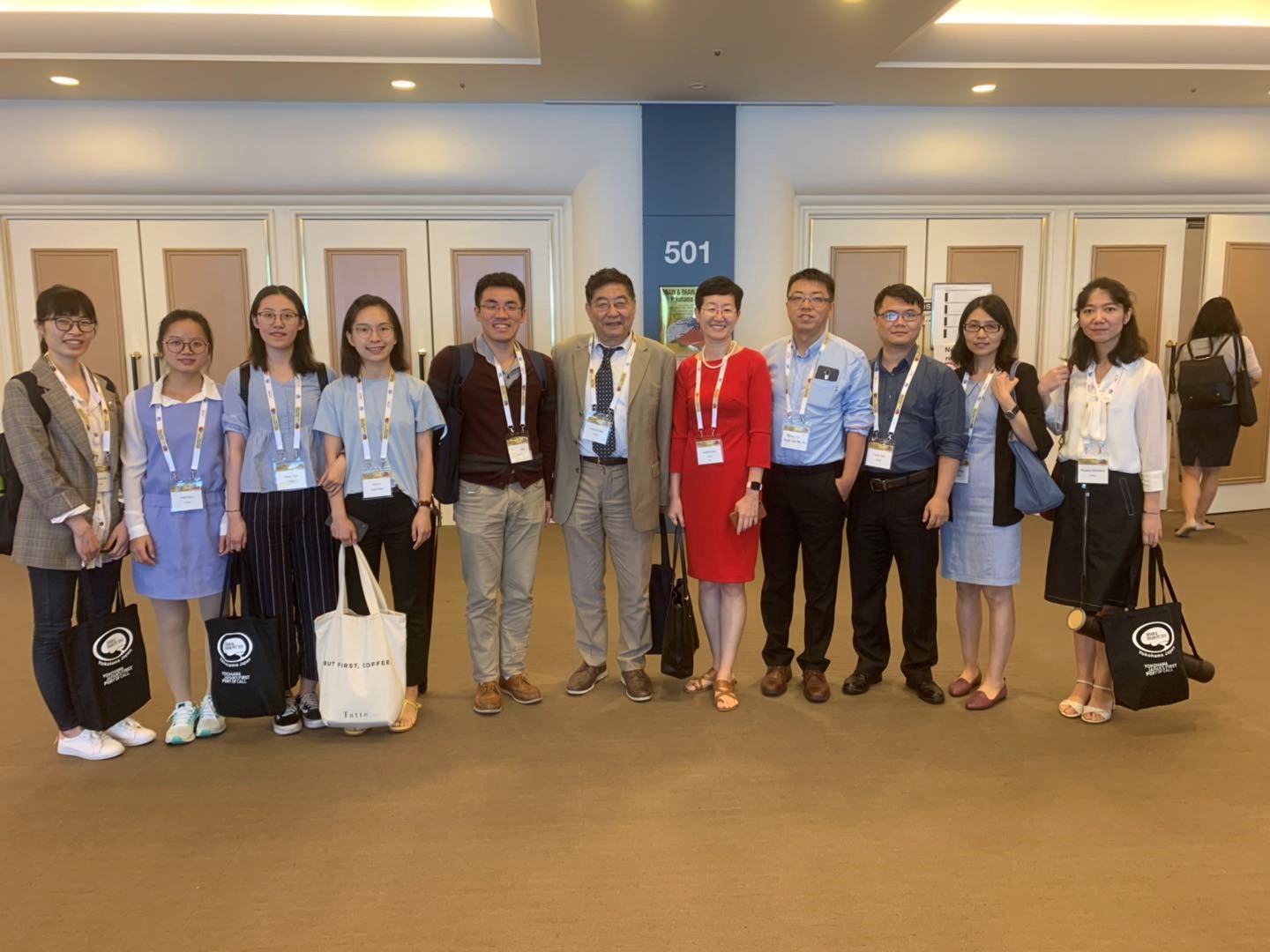
Photo of all participants (including graduated students)
BRAIN & BRAIN PET 2019 covers many fields of neuroscience research, especially brain function and metabolism, cerebral blood flow, neurovascular unit function and blood-brain barrier, brain imaging, brain repair, cerebrovascular pathology, etc. This conference, by sharing, reference, discussion of basic scientific research results and clinical investigation reports, provides scientific researchers in related fields with advanced and novel academic views, and increases people's understanding of the mechanism of cerebrovascular disease occurrence, treatment and diagnoses.
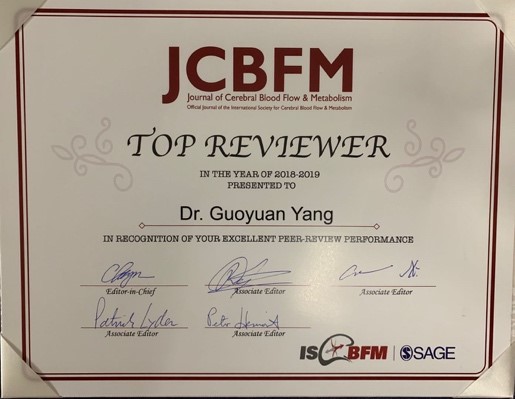
Prof. Guoyuan Yang won the "TOP REVIEWER" of JCBFM journal
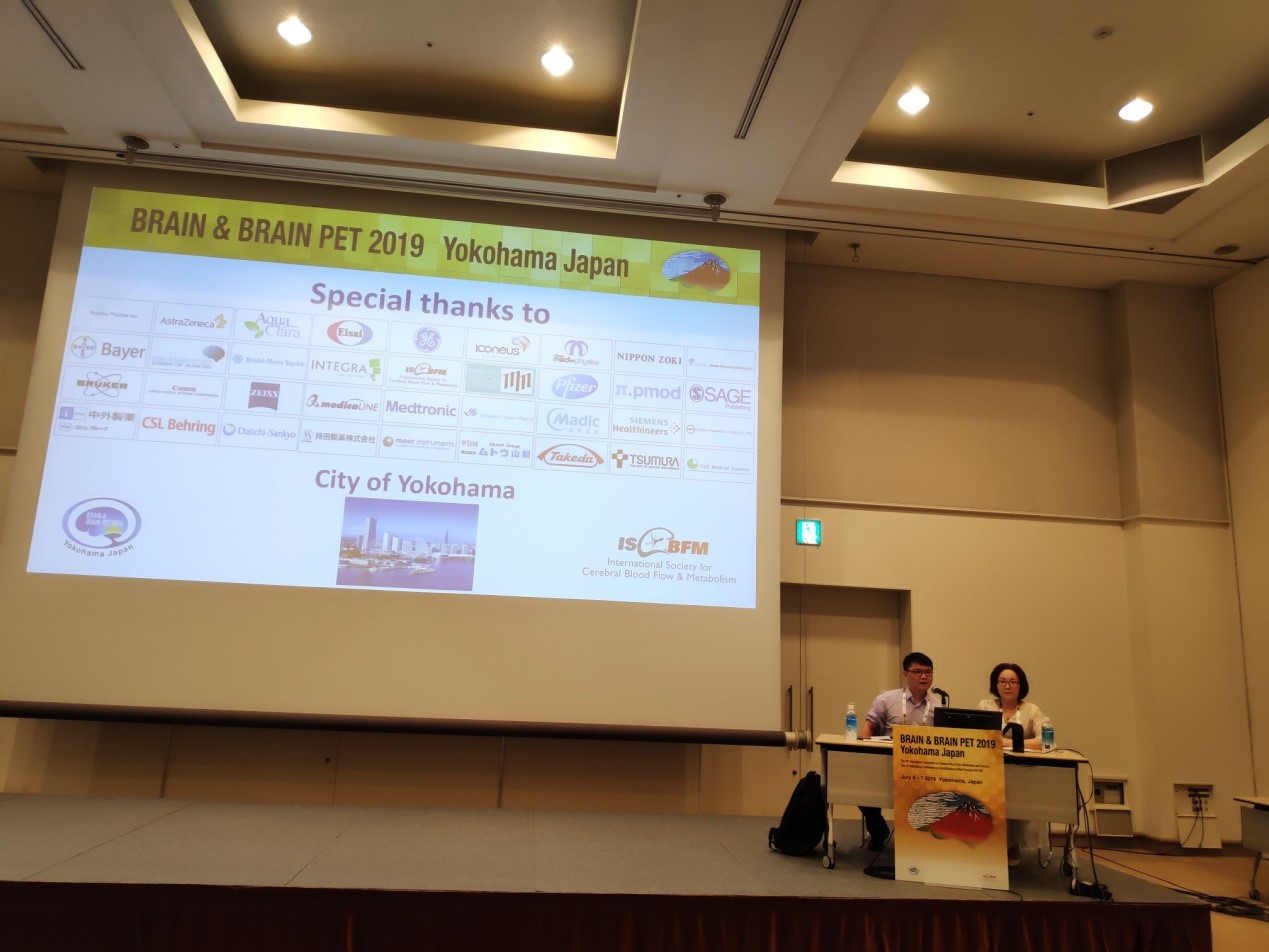
Assistant Professor Yaohui Tang host the meeting
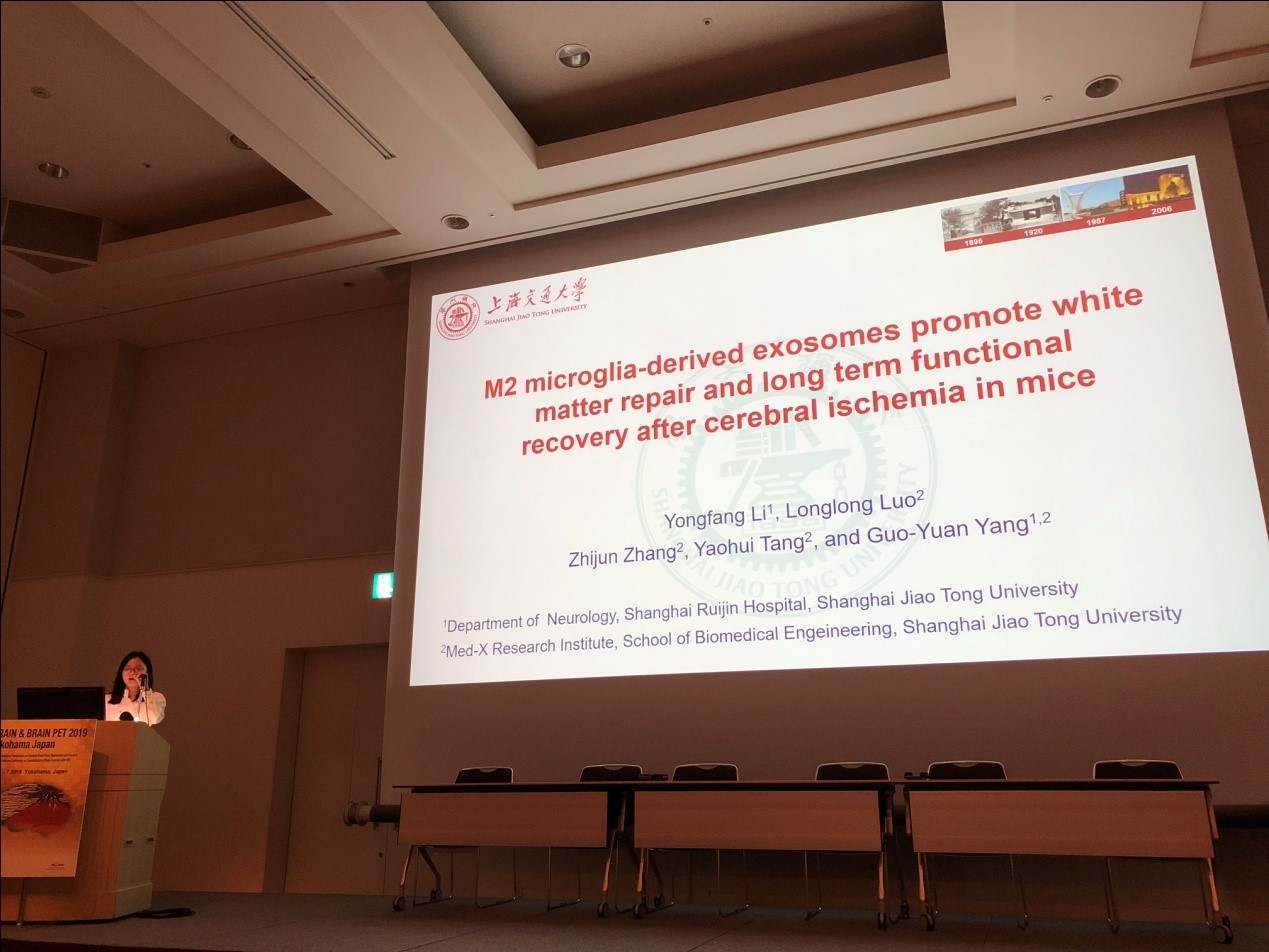
PhD student Yongfang Li gave an oral report on her research progress
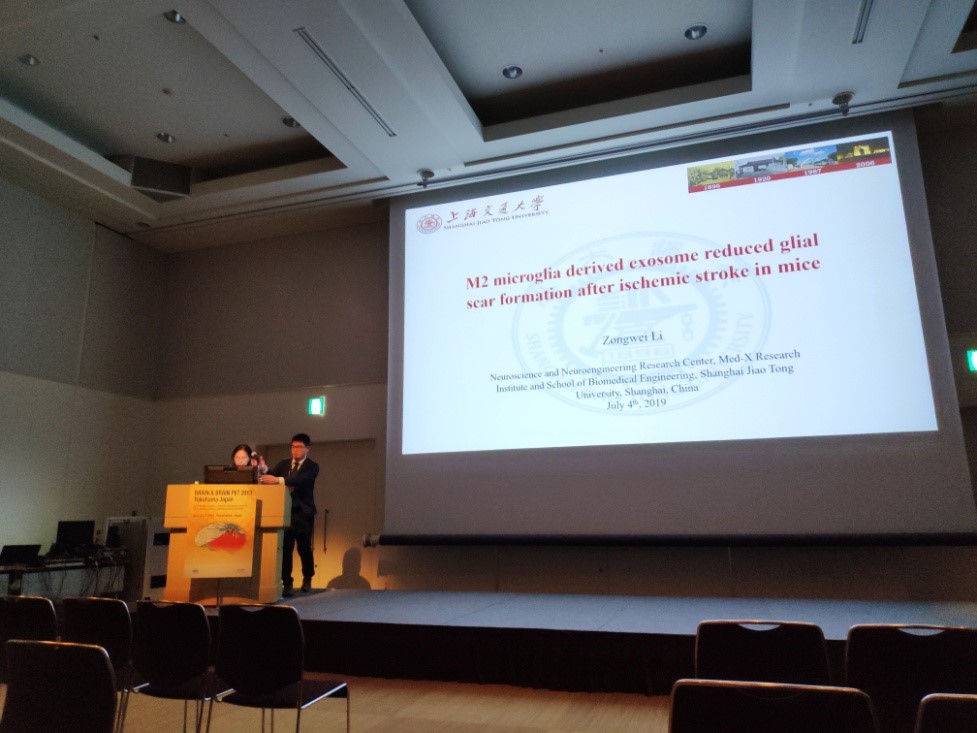
Postgraduate student Zongwei Li gave an oral report on his research progress
Postgraduate student Zongwei Li found that the exosomes produced by M2-type microglia can promote the production of glial scar after cerebral ischemia and inhibit the proliferation and migration of astrocytes. This effect is associated with miRNA-124 rich in exosomes produced by type M2 microglias, which reduce glial scarring by inhibiting STAT3.
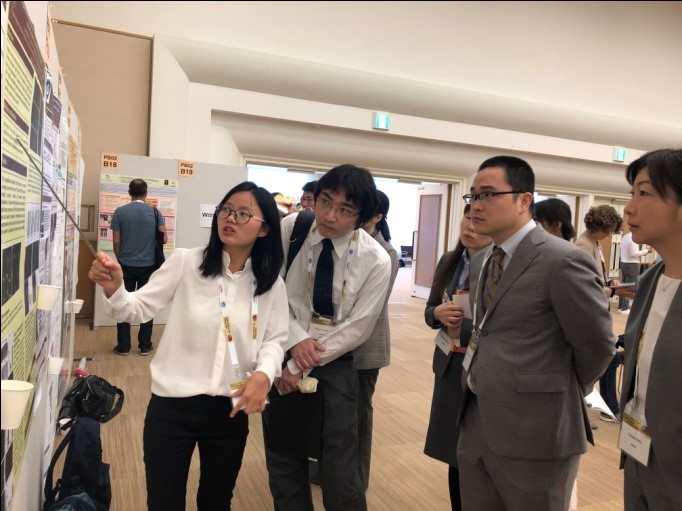
PhD student Yongfang Li explains her poster
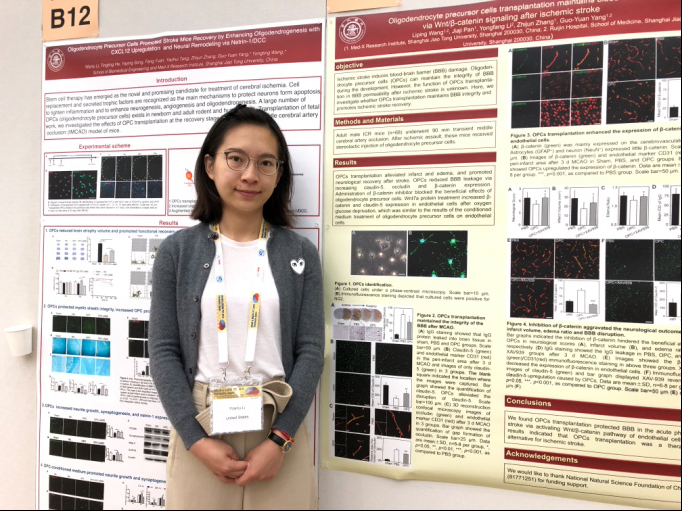
PhD student Li Wanlu was invited to present the poster
Transplantation of oligodendrocytes 7-14 days after tMCAO reduced brain atrophy and promoted recovery of neurological function in mice after 5 weeks of TMCAO. Oligodendrocyte progenitor cell transplantation can up-regulate CXCL12 in brain and promote the regeneration of oligodendrocytes. At the same time, it can also promote the growth of neurite processes and synaptic regeneration by secreting netrin-1 and acting on the receptor DCC on neurons.
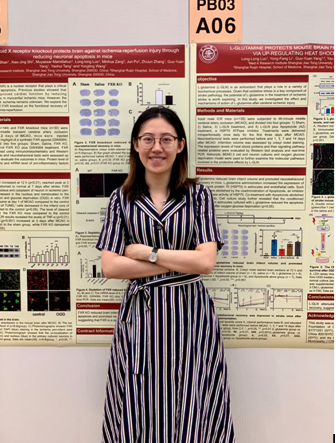
Master student Huimin Shan was invited to display her poster
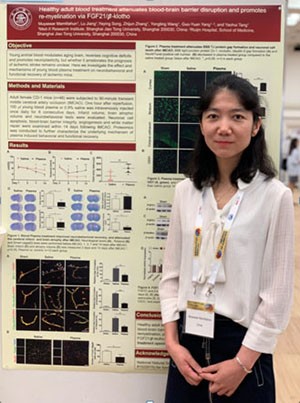
Doctoral student Muyashar was invited to present the poster
Professor Guoyuan Yang said that encouraging graduate students to attend international conferences is a necessary experience for graduate students to study and research. It is conducive to exercise students' acuity, enhance their understanding of scientific research, expand their professional knowledge reserves and inspire their ideas for scientific research. At the same time, it is beneficial to improve the international academic influence of Chinese scholars in the world, further promote the academic exchanges between our university and international universities and research institutes, and understand and explore the possibility of cooperation with advanced science and technology industry, which is of great significance to enhance the international influence of SJTU.
[1]Song Y, Li Z, He T, Qu M, Jiang L, Li W, Shi X, Pan J, Zhang L, WangY, Zhang Z, Tang Y, Yang GY. M2 microglia-derived exosomes protect the mouse brain from ischemia-reperfusion injury via exosomal miR-124. Theranostics. 2019 May 4;9(10):2910-2923.